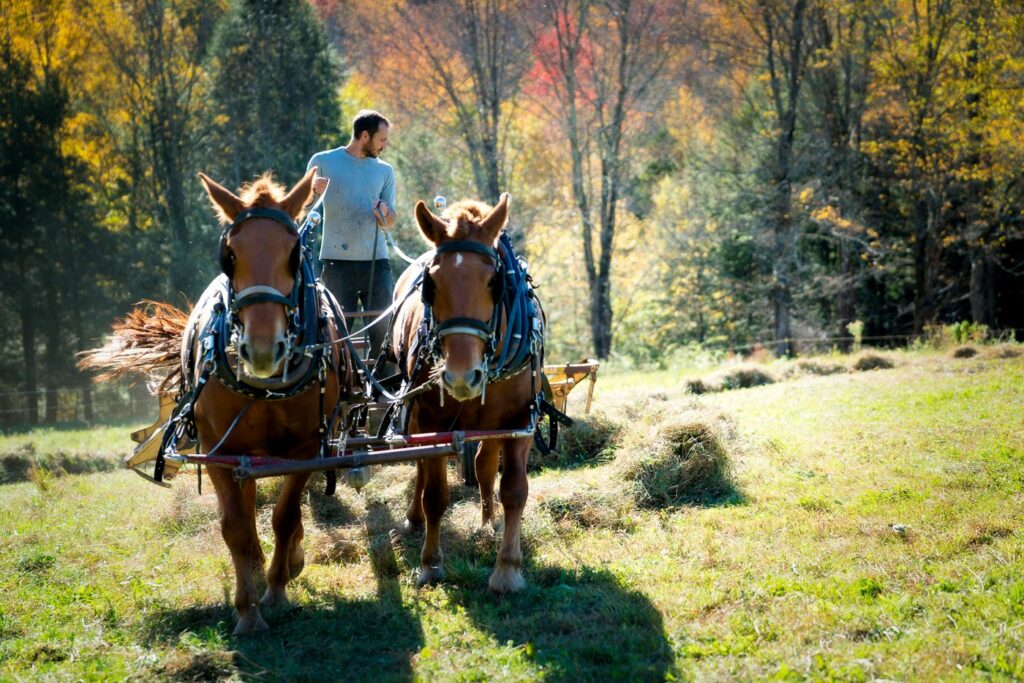Horse-Powered Soil Health at Sawyer Farm

For many farmers, incorporating soil health practices into their operations is a process of trial and error. This is the case for Sawyer Farm, an organic, horse-powered, no-till farm in Worthington, Massachusetts, that Lincoln Fishman and Hilary Costa own and operate. They purchased the farm in 2010, where they have cultivated three acres of storage crops. They started farming with horses to be connected to the labor that is involved and to move away from reliance on fossil fuels.
“Working with limited power causes you to think more about whether the work you’re doing is necessary. You can see the strain and the sweat from the animal, and it makes you aware of the areas of your work that are wasteful,” says Lincoln about working with his two horses, Trixie and Polly.
Over the last 10 years, Lincoln and Hilary have shifted the farm to a fully no-till operation. However, finding the time and the resources to invest in no-till equipment that also worked for their horse-powered tractor became increasingly more challenging. The funds provided to them through AFT’s New England Farmer Microgrants Program allowed them to purchase new equipment to expand and extend their farming operation.
The New England Farmer Microgrants Program, launched by American Farmland Trust in 2020, assists farmers in New England with financial barriers to land access, expanding onto new land, and farm succession planning.
“This grant money allowed us to purchase equipment that we would have either done without or sacrificed something else significant,” says Lincoln Fishman.
“We believe that shifting to no-till is the right thing to do for our soil and our plants, but the new systems we’re developing require experimentation and time. It is hard to justify experimental equipment purchases. This grant allowed us to speed up our process and move towards efficiency in our no-till system.”
Lincoln and Hilary are currently in their second year of no-till practices. Their farming practices help to build the soil organic matter while reducing the need to purchase inputs from off the farm. These techniques are still a work in progress, but Lincoln is optimistic that this investment in soil health practices will benefit both the Earth and the local community in the future.
Learn more at https://sawyer.farm/

